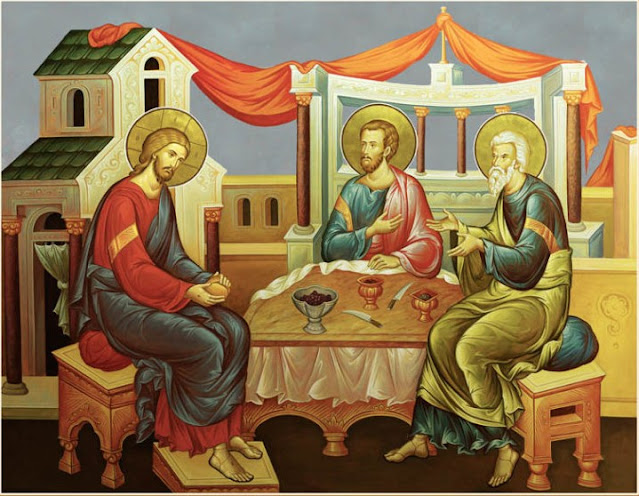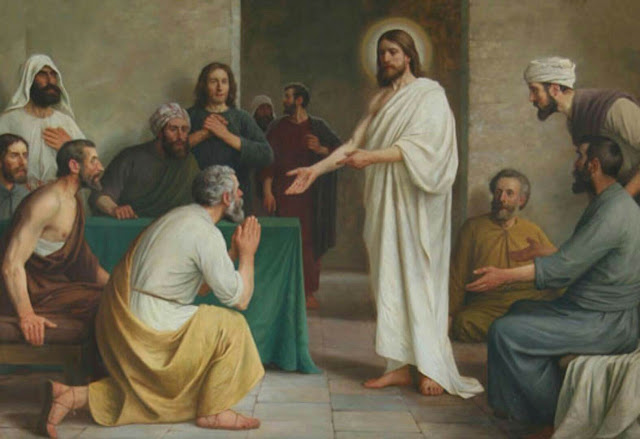Homily for the 3rd Sunday of Easter, April 14, 2024, Year B

Fr. Charles Irvin Diocese of Lansing ( Click here for Sunday’s readings ) Last Sunday’s Gospel account was about the disciples who were locked up in the Upper Room out of fear and Jesus’ appearance among them. Today’s Gospel account is about other disciples dejectedly walking from Jerusalem to a nearby hamlet called Emmaus and Jesus’ appearance among them also. It is curious to me is that in today’s account the important point revolves around recognition of Jesus. Here we find this group of disciples at first failing to recognize Jesus and in the end, they recognize Him. What happened? Why did they at first think He was a stranger and later come to realize who He really was? What seems to be controlling deals with the question of how we see people. Obviously, we’re not talking here about simply seeing with our eyes, we’re talking, rather, about seeing with our hearts. We’re dealing with seeing at deeper levels of knowing and understanding. That’s something we all know abou...




